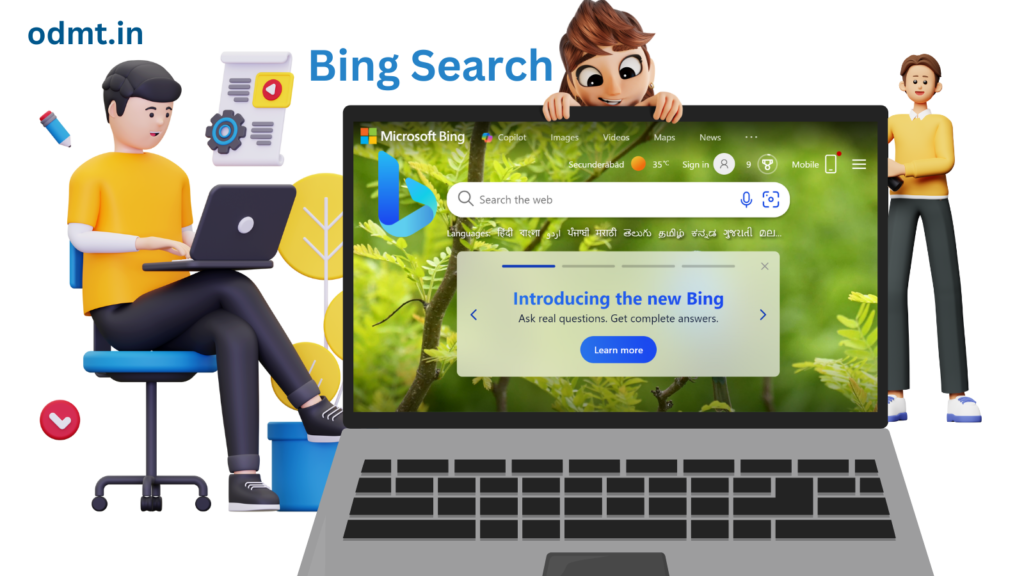SEARCH ENGINE:
A search engine is a software program that helps people find the information they are looking for online using keywords or phrases. Search engines are able to return results quickly even with millions of websites online by scanning the internet continuously and indexing every page they find.
A search engine is a software program or system designed to help users find information stored on the internet or within a specific database. Let’s delve into the details of how search engines work:
- Crawling: Search engines employ computer programs called crawlers to find publicly available information on the internet. These crawlers scan the web, creating a list of all available websites. They then visit each website, analyze its HTML code, and understand its structure, content type, meaning, and creation/update date. Ensuring that your website is accessible to crawlers is crucial for search engine optimization. If crawlers cannot find your content, your website won’t receive any ranking or search engine traffic.
- Indexing: Once the crawler identifies information, it needs to be organized, sorted, and stored for later processing by the ranking algorithm. Search engines maintain an index containing essential details about web pages, such as:
- Title and descriptionType of contentAssociated keywordsNumber of incoming and outgoing linksOther relevant parameters needed for ranking
- Ranking: Ranking determines the position of your website in search engine results. Here’s how it works:
- Relevance: Search engines evaluate how well a page matches a user’s query. They consider factors like keyword relevance, content quality, and user intent.
- Authority: Search engines assess a page’s authority based on the number and quality of incoming links. Pages with more authoritative links tend to rank higher.
- User Experience: Factors like page load speed, mobile-friendliness, and overall user experience impact rankings.
DIFFERENT SEARCH ENGINES:
- BING
- YAHOO!
- YANDEX
- DUCKDUCK GO
- BAIDU
- ASK.COM
- NAVER.
Bing.com: As of December 2023, Microsoft’s Bing handles 7.1% of all search queries in the United States. Bing offers a rewards program where users can accumulate points while searching, which are redeemable at the Microsoft and Windows stores. Additionally, Bing’s visual search API is intuitive, and it excels in video searches without a YouTube bias. Recently, Bing introduced an AI-powered version of its search engine called “copilot”(formerly known as Bing chat)aiming to deliver better search results, complete answers, and a new chat experience.

DuckDuckGo: Known for its strong privacy focus, DuckDuckGo doesn’t track user data or personalize search results. It provides unbiased search results and emphasizes user privacy.

Yahoo!: Although Yahoo’s popularity has declined over the years, it still offers a search engine with a wide range of content, including news, finance, and entertainment.

Baidu: The largest search engine in China, Baidu dominates the Chinese market. It provides search results in Chinese and offers various services beyond search.
Yandex: Russia’s leading search engine, Yandex provides localized search results and services. It’s especially popular in Russian-speaking regions.
Ask.com: Formerly known as Ask Jeeves, Ask.com allows users to ask questions in natural language and provides relevant answers.
WRAPPIN UP:
The best first search uses a heuristic function in informed decisions. It helps in finding the right and quick path towards the goal, called heuristic search. The current state of the user in the maze is the input of this function, based on which it estimates how close the user is to the goal.
Remember that each search engine has its unique features and strengths.Popular search engines like Google, Bing, and Yahoo use these principles to provide users with relevant results. So,The next time you search for something online, remember that search engines are working behind the scenes to help you find the information you need.
